I have written testimony on bills before, but never have I done so for a budget hearing. But when Jackie Gregory, a friend and supporter of this website from Cecil County, wrote up her ideas on her county’s budget and posted this to Facebook, I asked her if I could share and she kindly gave permission. This is as she prepared it for delivery:
I do not believe that the current budget proposed is a responsible budget. I lay that at the feet of the council since one of your few powers is to appropriate funds. I do not advocate a slash and burn approach, but as a citizen and taxpayer, I expect the council to go through the budget line by line, find points of agreement on what can/should be cut, and make those decisions for the benefit of taxpayers. I haven’t seen that process play out with the council or any real collaborative effort to actually delve into the budget. This is very disappointing to say the least.
From the perspective of an average middle class citizen: There are many things in my house that need improvement, which I can’t afford to do all at once; they require me to break up the projects over the course of a couple of years. Yet I see the library asking for a $400k increase on a 4 million dollar budget in one year, because they have a lot of improvements they would like to do at once. They should decide what is necessary to do now, and what they want to defer until the next budget cycle. Also, I can’t afford to send my son to camp for a week overnight, yet this budget asks me to pay for other people’s kids to go on vacation for a week (North Bay). I don’t believe the current budget is responsible as written.
A rule for using the fund balance should be that only the amount gained in the fund balance over the course of the previous year should be used. Otherwise, it will be quickly depleted. You don’t want to adopt G.W. Bush’s economic policies: low taxes, increased spending, increased debt and deficits. Any new spending should be paid for by cuts elsewhere.
Also, new mandates beyond your control such as WIP compliance and the teacher pension shift need to be explained to the public with dollar figures attached to them so that the citizens understand what portion of new spending you control, and what portion you do not control. I believe that the teacher pension shift accounts for over 3 million dollars of the new spending in this budget.
In addition, I am aware that spending does not happen once a year, and that many taxpayer dollars have been wasted/lost due to poor decision making in the past. We lost millions and gained a continuing financial burden due to the sabotage of the sale of waste water plants to Artesian (by Councilwoman Broomell). That act alone adds 300k of unnecessary spending to this year’s budget, for upgrades to those facilities. The last board (Broomell, Mullin, Dunn) voted to waste half a million taxpayer dollars buying up development rights from a farmer to give them to the federal government. Citizens need to realize that the budget is not a one day event, and I encourage citizen involvement in government beyond just the final budget passage.
This board needs to vote down the current budget or delay it until you can come up with more significant cuts.
Suggested cuts:
For the new capital road improvements, have bike paths been added into the design features of the roads in compliance with the new bike plan? If so, that should be stripped. It’s not something we need right now.
Getting rid of the turf field and replacing it with something else should eliminate a couple hundred thousand.
The sick leave issue should be dealt with.
I would cut the library budget significantly; they should defer half or more of the projects until next year.
I would give Cecil College flat funding. We already subsidize the majority of a Cecil College student’s education. At the post secondary level, the amount asked of taxpayers for the purpose of funding a college education should be much less than it is. College students are not small schoolchildren, and they and their parents need to take more financial responsibility for their own education.
Improvements on Oldfield Point Road are slated for 800k. I know that has been on the CIP for awhile, but I live near there and there really is no dire emergency to upgrade the road. It is fine. I would defer that till next year.
I don’t think there is any great emergency with the Rolling Mill Bridge either; if it isn’t vital, it should be deferred until next year too. (Those two road projects alone would save a million.)
The auditor can be cut/scaled down. An outside auditor to deal with particular issues that may arise may be legitimate, but we should not be paying a full salary and benefits to do the job members of the council are supposed to do. If a council member feels incapable of doing the job you were elected to do without the help of an in-house auditor, then it is time for you to find a new line of work.
The school budget has increased drastically. They should not be expanding preschool beyond the state mandate, and the North Bay trip is back in the budget. When I was a child, most kids, including me, did not attend preschool, and my parents never took the time to teach me anything. Yet my peers and I did just fine. I understand that there is a preschool mandate for at-risk kids, but the district should not be expanding preschool beyond that. Given the number of new mandates, I would offer the schools flat funding plus the cost of teacher pensions. That would probably save about 1.4 million. Remember, they also have a fund balance they can dip into if they believe their budget requests are crucial enough.
What I have listed above is probably close to 3 million in cuts. I’m sure there are others who can offer other suggestions. Please consider them.
If you choose to rubber stamp this budget without offering up significant cuts, then there will be a lot of citizens, including this one, who will feel like we were duped into supporting folks who were going to use their business experience to run the government in a more efficient, taxpayer conscious way. I sincerely hope you use your skills to cut the budget to a responsible, reasonable size.
Obviously I’m not a resident of Cecil County – although its politics are perhaps the most interesting in the state, particularly for a county of its relatively small size – so I don’t know the lay of the land that well. Yet I could well understand exactly what Jackie was talking about in a larger sense, and her points were well taken because she not only advocated for a more limited government, she spelled out a lot of specifics on what could be pruned from her county’s financial docket.
Oftentimes I’ve gone to Wicomico County’s dog and pony show, although I skipped this year’s rendition because I don’t have the confidence anymore that my County Council will go to the wall for fiscal conservatism since the Bennett Middle School debacle. Meanwhile, our County Executive whines about not having enough money but obviously doesn’t mind adding millions in debt while convincing the bonding agencies that our situation is better than it really is.
But I digress. One problem we’ve had is that everybody and their brother can say “we can’t afford this budget” but they’re quick to exclude their pet project from the chopping block. Instead, Jackie sacrificed a road repair near her house, telling her County Council that the road was in decent enough repair to last another year.
She also brought up a very, very important point – one rarely mentioned by those who create the budget. Just how much do state mandates cost us as a share of the budget? It would probably be an eye-opening experience to see this; for example, one state mandate cost Wicomico County taxpayers $1.3 million (see page 8 here) although it may have “saved” us from a $14 million hit. No one would call the bluff, though, and now the County Executive wants to go $1 million above and beyond maintenance of effort, meaning every year we will have to come up with an extra million dollars because the bar will be raised – by yet another state mandate, since maintenance of effort is a state law.
So if your county (or city, or state) is going through its annual budgetary battle and you have the opportunity to have your say, use this as a guide: know your facts and come prepared with alternatives. This was an outstanding effort.


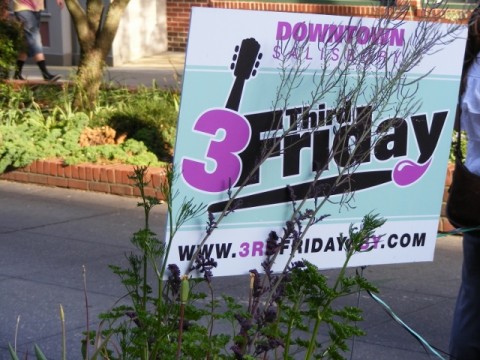




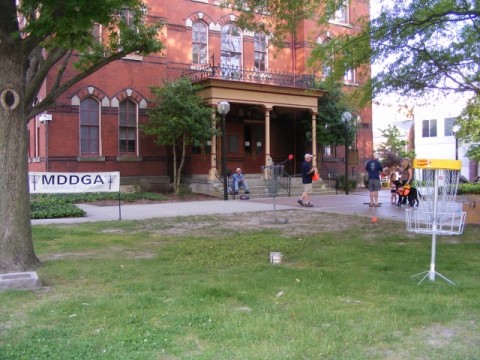


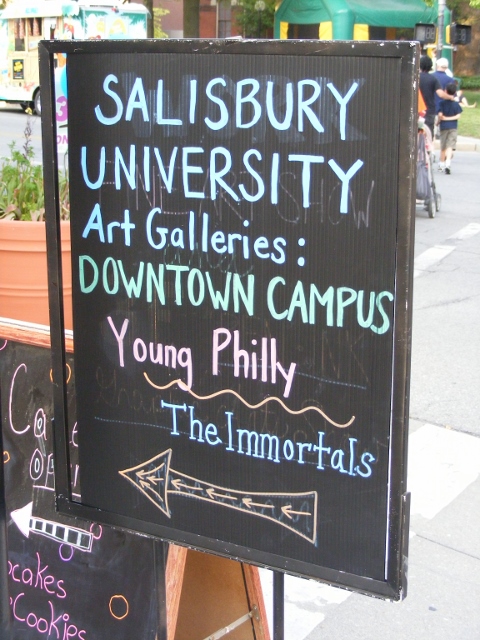
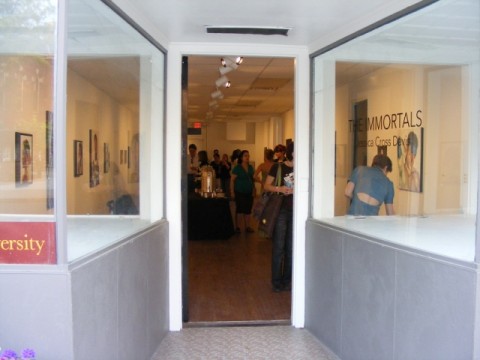





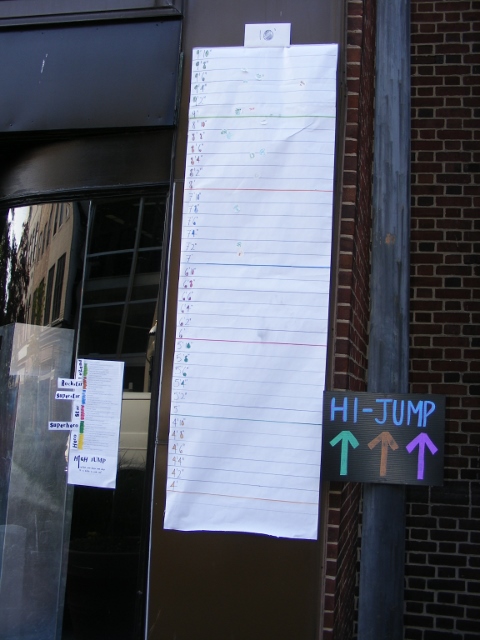
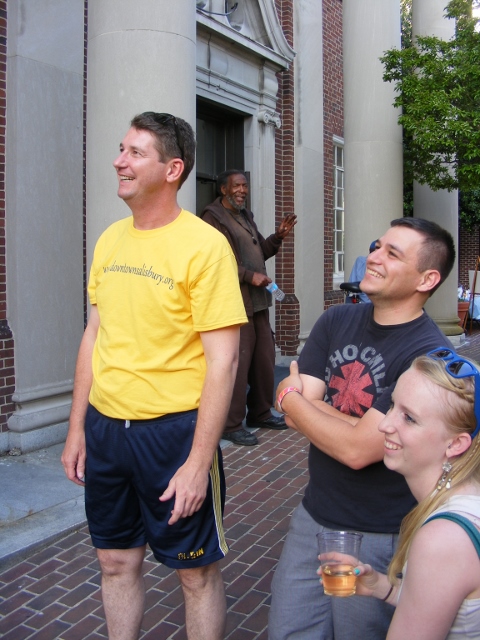










 Updated below.
Updated below.